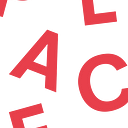Why Lankelly Chase changed the way it works
Authors: Habiba Nabatu and Julian Corner, Oct 2019
Habiba: Our role as a foundation has shifted a lot over the years. I would like to hear your thoughts on why we decided to change the way we work.
Julian: The initial motivators for the change in our role were twofold. The first being that we are working in a complex, evolving environment. We need to understand how best to operate, make decisions and relate to others within that changing environment. That requires us to understand what we have learned from the work we are supporting so that it can evolve and be of use. And it needs us to be closer to the activity to understand it better. So, it’s what are we learning, and how are we using that learning?
The second motivator is that we are asking people to take on work that is high risk. If they are going to do work that is trying to change systems, they will probably have to take on vested interests and potentially put themselves and their organisations at risk. They need to know that we are trusted partners, that we will be watching their back as best as we can, and there will also be a degree of solidarity between us. Because there is power inequality between the funder and the funded, it needs to be a relationship with trust.
So together these things mean that we have to operate with more agility and get closer to the situation we are trying to intervene in and be more known to people.
For me, there is another phase of this. I remember getting an application from a project in an area far from where we are based. It was good, outstanding, pioneering work. The project came to us because no one locally was prepared to fund it. My concern was that we were short-circuiting a process that had to happen locally. If we had funded that project, then the difficult conversation that needed to happen locally, about what all the local stakeholders make of this project, wouldn’t happen because we would have dropped the money in and everyone would have carried on without having the difficult conversations.
So in a sense, our money was funding good activity, but it was a barrier to the necessary conversations happening between people. And that has two implications, one if the money is needed, it needs to follow from the hard conversations, not displace them. It also implies that we need to be there locally with the offer of money and also ensuring that those conversations happen.
The problem with a distance funder is they lack an understanding of the context and also skew that context. This isn’t to say that we shouldn’t fund things that people locally are not prepared to fund. Of course, we should, but not at the expense of testing the relationships between people.
Habiba: If we are closer to the people and the work, what is our role and day to day work?
Julian: It will look different in different places. As an independent funder, we have the opportunity to have a different vantage point in a local area, say than public health or local authority. We may be able to hear different voices to those that they are hearing, but that requires that we pay careful attention to what people are saying. So there is a degree to which we need to read the systems that show up locally. Try and attend to unusual suspects or lesser-heard voices to bring out what is trying to emerge and understand where can we best play a role in providing support.
It might be that we end up doing something traditional such as funding some people to play a fuller role within a system. It’s just as likely to entail us trying to bring together and facilitate a different kind of conversations between people. It means that we have to be trying to understand the situation from many perspectives, through different eyes. In particular, we must try and create the conditions in which different kinds of decisions can emerge, decisions which have the contribution of a broader range of actors.
To my mind, it doesn’t mean that a different set of players make the decisions instead, but that decisions are made between a more extensive and more diverse set of people so that there can be some moving towards a more collective understanding of the shift that is required.
At the heart of that for me is the ability of an independent actor, like a funder to start challenging some of the more rigid “them” and “us” barriers that emerge between people, particularly between public services, local authority, voluntary sector and people in the local community. Where a whole set of unhealthy projections can develop between people, who are all trying to achieve very similar things and are motivated by the same values and somehow have lost each other because of the gravitational pull of institutions, organisations and hierarchy that stop people seeing each as clearly as they could.
We can help create spaces in which people can reconnect with each other again as human beings who are trying to make a local area a better place to live.
